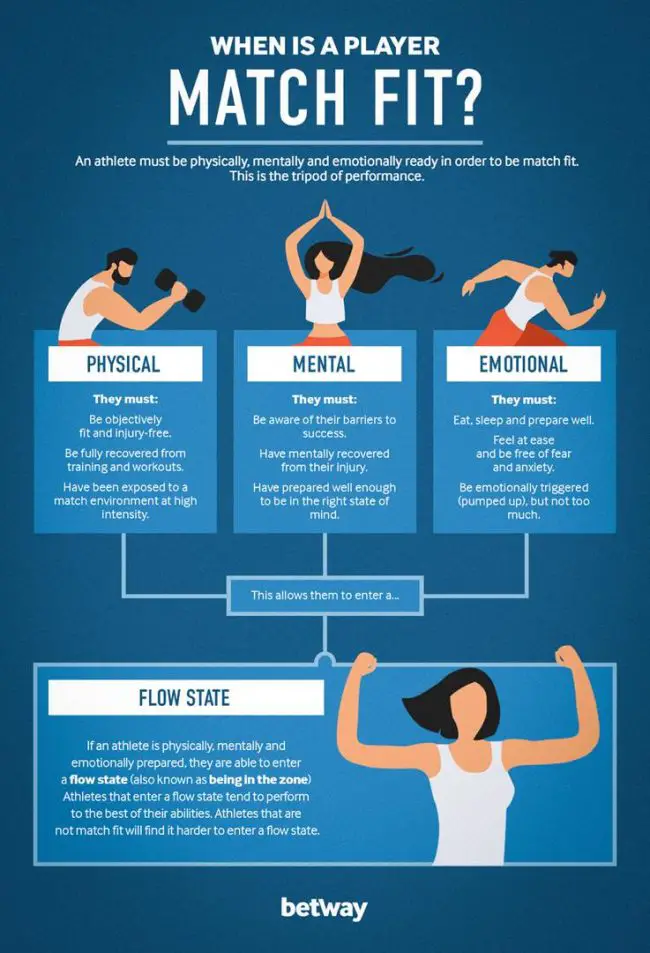What distinguishes a top athlete from an average one is, among other things, the skill of quickly overcoming a mistake and quickly returning to the moment now and here.
The mistake is usually a problem during the match and the longer it stays in consciousness, the longer it interferes with spontaneous behavior and focusing on current events and demands on the field.
Self-Condemnation
Everything went according to plan, you had the feeling that it was your day, you warmed up, entered the game and here it is – your first mistake. You didn’t want it to happen and then a voice in your head tells you: “You’re a disaster, go home, you’re not up to this, etc.”
If this foul language that athletes say to themselves lasts long, i.e. if it’s not forgotten by the next move, it leads to a blockade and the impossibility for an athlete to return to the game. Every next mistake only confirms what athletes are saying to themselves, attention is redirected to small details that aren’t even decisive.
“We as medical staff and coaching staff want the player to be confident, ultimately. We want to make sure that the psychology and feedback from the player is positive so that they can feel primed for competitive action,” says Richard Collinge, who has been the Head of Medical Services at English football club West Ham United since 2018.
This attitude can be a reflection of low self-esteem. It represents a person’s tendency to evaluate itself positively and believe in his/her efficiency. When athletes see themselves as skillful, capable, and intelligent, it increases their chances to be more active and to adapt to the environment, and thus to return to the game and adapt to the situation in order to exert their influence on it and on the final result.
The opposite of self-condemnation is the practice of so-called inner positive self-talk. Athletes are the most important coaches to themselves. If they don’t develop the skill to cheer themselves up, the mood of an athlete and the performance will always depend on an external factor – the coach, teammates, or the audience.
“You get some guys who are so passionate. They feel that if they’re not playing then they’re letting the team down,” explains Dan Garner, ex-coach of UFC champions Ronda Rousey and Michael Bisping,
“You don’t want to be too emotionally aroused, or you’ll start making bad decisions. You’re too jazzed up. But you also don’t want to be not aroused at all, because being too calm and too relaxed doesn’t have you hyped up enough.”
The Expectation of Sinlessness
Many athletes interpret the mistake as the ultimate defeat of their abilities and talents. The expectation that you aren’t allowed to make any wrong moves in the upcoming game or competition isn’t rational because it’s very likely that this is exactly what will happen, just as the best athletes in the world make mistakes.
The approach “all or nothing” can easily deceive, especially while the game is still on. The end result of one game is either victory or defeat, but that result is a consequence of a series of minor victories and defeats.
Inability to Endure an Effort
“I can’t do it”, “This is hard”, “It’s cold in the hall”, “Who the hell schedules a game so early”, are just some of the complaints and inconveniences that athletes can use to justify their current failure. In order to be successful and measure up with the best in what they do, athletes must build the ability to tolerate frustration, that is, the psychological immunity.
Frustration is an obstacle that occurs in achieving what they want (promotion to a higher rank, qualifying for a tournament, winning over an opponent, scoring a goal, a basket, etc.).
Like physical immunity, the ability to tolerate frustration is also developed by overcoming everyday problems that prevent athletes on their way to the goal. Any giving up in the face of discomfort and uncertainty leads athletes away from success, while any decision to overcome the discomfort strengthens their psychological structure just as physical exertion strengthens skeletal muscles.
If, in a situation when they experience failure, they want to give up and would prefer to be somewhere else, athletes most likely don’t have a developed psychological immunity.
Some athletes find the causes of their mistakes and defeats in external factors that they can’t control. By overemphasizing these factors, internal factors and personal contribution to the result are neglected.
In this way, athletes deprive themselves of their responsibility for mistakes and there are no further requests to invest additional effort, training, and exercises to correct mistakes, overcome obstacles and achieve a further step in progress. In contrast, athletes who have developed the ability to tolerate frustration are, in situations where they fail, focused on finding ways to overcome difficulties and reduce future mistakes with adequate efforts.







